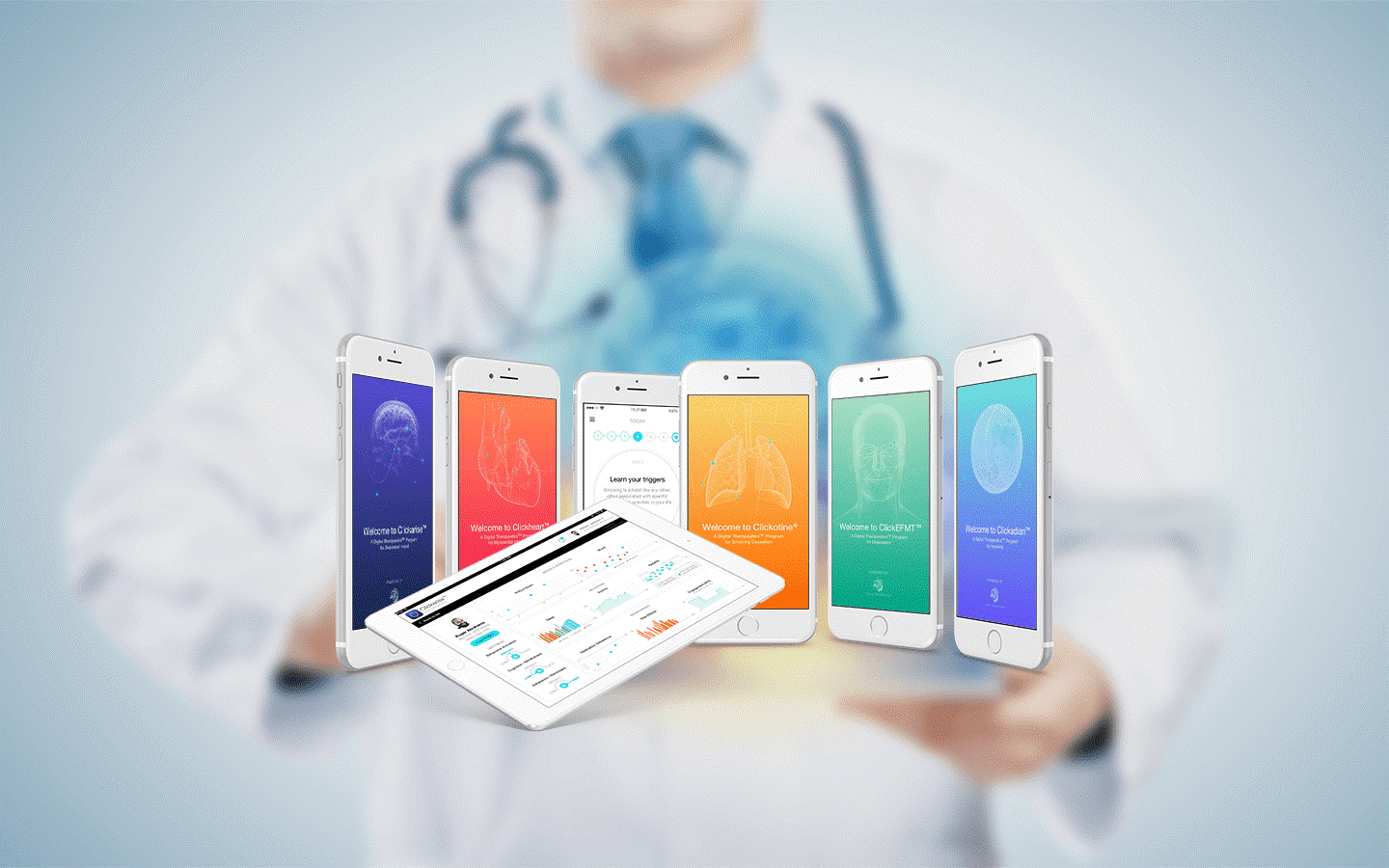Digital Therapeutics (DTx) is an emerging field that leverages digital technology to deliver evidence-based therapeutic interventions to patients. These interventions are designed to prevent, manage, or treat a broad spectrum of physical, mental, and behavioral conditions. Unlike traditional medical treatments, digital therapeutics offer a personalized, data-driven approach to healthcare, making it a revolutionary tool in
Digital Therapeutics (DTx) is an emerging field that leverages digital technology to deliver evidence-based therapeutic interventions to patients. These interventions are designed to prevent, manage, or treat a broad spectrum of physical, mental, and behavioral conditions. Unlike traditional medical treatments, digital therapeutics offer a personalized, data-driven approach to healthcare, making it a revolutionary tool in disease management.
The Rise of Digital Therapeutics
The concept of digital therapeutics is relatively new but rapidly gaining traction. With advancements in technology, the healthcare industry is witnessing a paradigm shift from conventional treatment methods to digital health solutions. Digital therapeutics encompass a wide range of products, including mobile health apps, wearable devices, and software programs designed to improve patient outcomes.
One of the key drivers behind the rise of digital therapeutics is the increasing prevalence of chronic diseases such as diabetes, cardiovascular diseases, and mental health disorders. Traditional treatment methods often fall short in managing these conditions effectively, leading to a growing demand for innovative solutions. Digital therapeutics address this gap by offering personalized, real-time interventions that can be accessed anytime, anywhere.
How Digital Therapeutics Work
Digital therapeutics utilize a combination of software and data analytics to deliver personalized treatment plans. These plans are often based on clinical evidence and are designed to target specific health conditions. Here’s a closer look at how digital therapeutics work:
Data Collection and Analysis
Digital therapeutics platforms collect data from various sources, including wearable devices, mobile apps, and electronic health records. This data is then analyzed using advanced algorithms to identify patterns and trends that can inform treatment plans.
Personalized Interventions
Based on the data analysis, digital therapeutics platforms generate personalized interventions tailored to the individual needs of each patient. These interventions can include lifestyle recommendations, medication reminders, behavioral therapy, and more.
Continuous Monitoring and Feedback
One of the key advantages of digital therapeutics is the ability to provide continuous monitoring and feedback. Patients can track their progress in real-time, and healthcare providers can adjust treatment plans as needed based on the collected data.
Integration with Traditional Healthcare
Digital therapeutics are designed to complement, not replace, traditional healthcare methods. By integrating digital therapeutics with conventional treatments, healthcare providers can offer a more comprehensive approach to disease management.

Picture by: Yandex.com
Applications of Digital Therapeutics
Digital therapeutics have a wide range of applications across various medical fields. Here are some of the key areas where digital therapeutics are making a significant impact:
Diabetes Management
Diabetes is one of the most common chronic diseases worldwide, affecting millions of people. Digital therapeutics offer a promising solution for diabetes management by providing personalized treatment plans that include lifestyle recommendations, medication reminders, and continuous glucose monitoring. These interventions can help patients maintain better control over their blood sugar levels, reducing the risk of complications.
Mental Health
Mental health disorders, such as depression and anxiety, are becoming increasingly prevalent. Digital therapeutics can offer effective interventions for mental health management through cognitive behavioral therapy (CBT) apps, mindfulness programs, and other digital tools. These interventions can help patients manage their symptoms and improve their overall well-being.
Cardiovascular Diseases
Cardiovascular diseases are a leading cause of death globally. Digital therapeutics can play a crucial role in managing these conditions by providing personalized treatment plans that include lifestyle modifications, medication adherence, and continuous monitoring of vital signs. These interventions can help patients reduce their risk of heart attacks and strokes.
Respiratory Diseases
Chronic respiratory diseases, such as asthma and chronic obstructive pulmonary disease (COPD), can significantly impact a patient’s quality of life. Digital therapeutics offer personalized interventions that include medication reminders, breathing exercises, and continuous monitoring of respiratory function. These interventions can help patients manage their symptoms more effectively and improve their overall health.
Obesity and Weight Management
Obesity is a major risk factor for various chronic diseases, including diabetes, cardiovascular diseases, and certain cancers. Digital therapeutics can offer personalized weight management plans that include dietary recommendations, exercise programs, and behavioral therapy. These interventions can help patients achieve and maintain a healthy weight, reducing their risk of chronic diseases.
Benefits of Digital Therapeutics
Digital therapeutics offer several benefits over traditional treatment methods. Here are some of the key advantages:
Personalized Care
One of the main benefits of digital therapeutics is the ability to provide personalized care. By leveraging data analytics and advanced algorithms, digital therapeutics platforms can generate treatment plans tailored to the individual needs of each patient. This personalized approach can lead to better patient outcomes and improved quality of life.
Accessibility and Convenience
Digital therapeutics can be accessed anytime, anywhere, making it a convenient option for patients. This is particularly beneficial for individuals with chronic conditions who require continuous monitoring and interventions. Patients can receive real-time feedback and support, helping them manage their conditions more effectively.
Cost-Effectiveness
Digital therapeutics can be a cost-effective solution for disease management. By offering personalized interventions and continuous monitoring, digital therapeutics can help reduce the need for hospital visits and other costly medical procedures. This can lead to significant cost savings for both patients and healthcare providers.
Improved Patient Engagement
Digital therapeutics can enhance patient engagement by providing interactive and user-friendly platforms. Patients can actively participate in their treatment plans, track their progress, and receive real-time feedback. This increased engagement can lead to better adherence to treatment plans and improved health outcomes.
Data-Driven Insights
Digital therapeutics platforms collect and analyze vast amounts of data, providing valuable insights into patient health. Healthcare providers can use this data to make informed decisions about treatment plans and adjust them as needed. This data-driven approach can lead to more effective and efficient disease management.
Challenges and Future Directions
While digital therapeutics offer numerous benefits, there are also several challenges that need to be addressed. These include data privacy and security concerns, regulatory hurdles, and the need for further research to validate the effectiveness of digital interventions.
Despite these challenges, the future of digital therapeutics looks promising. As technology continues to advance, digital therapeutics are expected to play an increasingly important role in disease management. The integration of artificial intelligence, machine learning, and other advanced technologies will further enhance the capabilities of digital therapeutics, leading to more personalized and effective interventions.
Conclusion
Digital therapeutics represent a significant advancement in the field of disease management. By leveraging digital technology and data analytics, digital therapeutics offer personalized, evidence-based interventions that can improve patient outcomes and quality of life. While there are challenges to overcome, the potential benefits of digital therapeutics make it a promising solution for managing a wide range of health conditions. As the healthcare industry continues to evolve, digital therapeutics will undoubtedly play a crucial role in shaping the future of disease management.
















